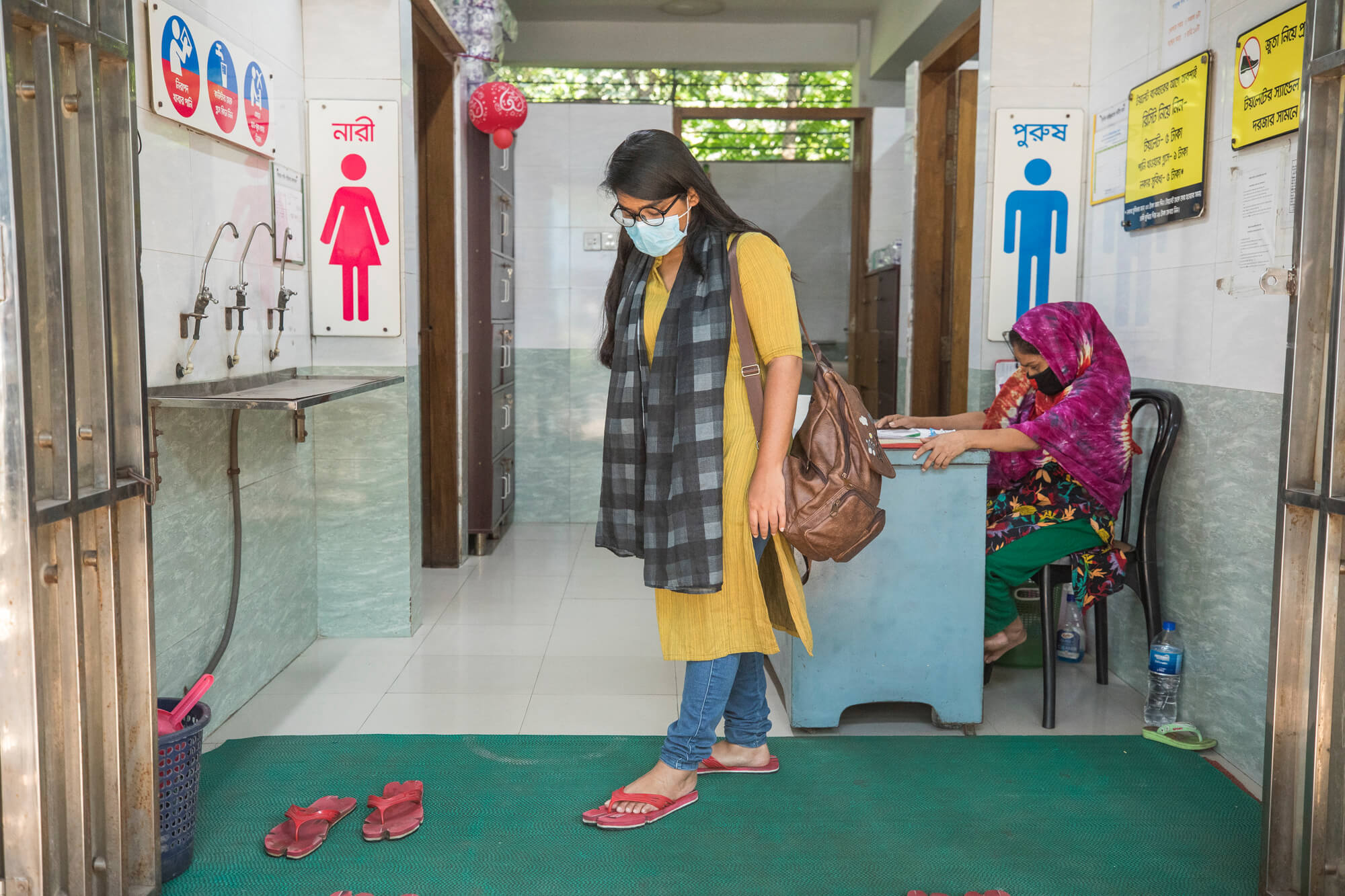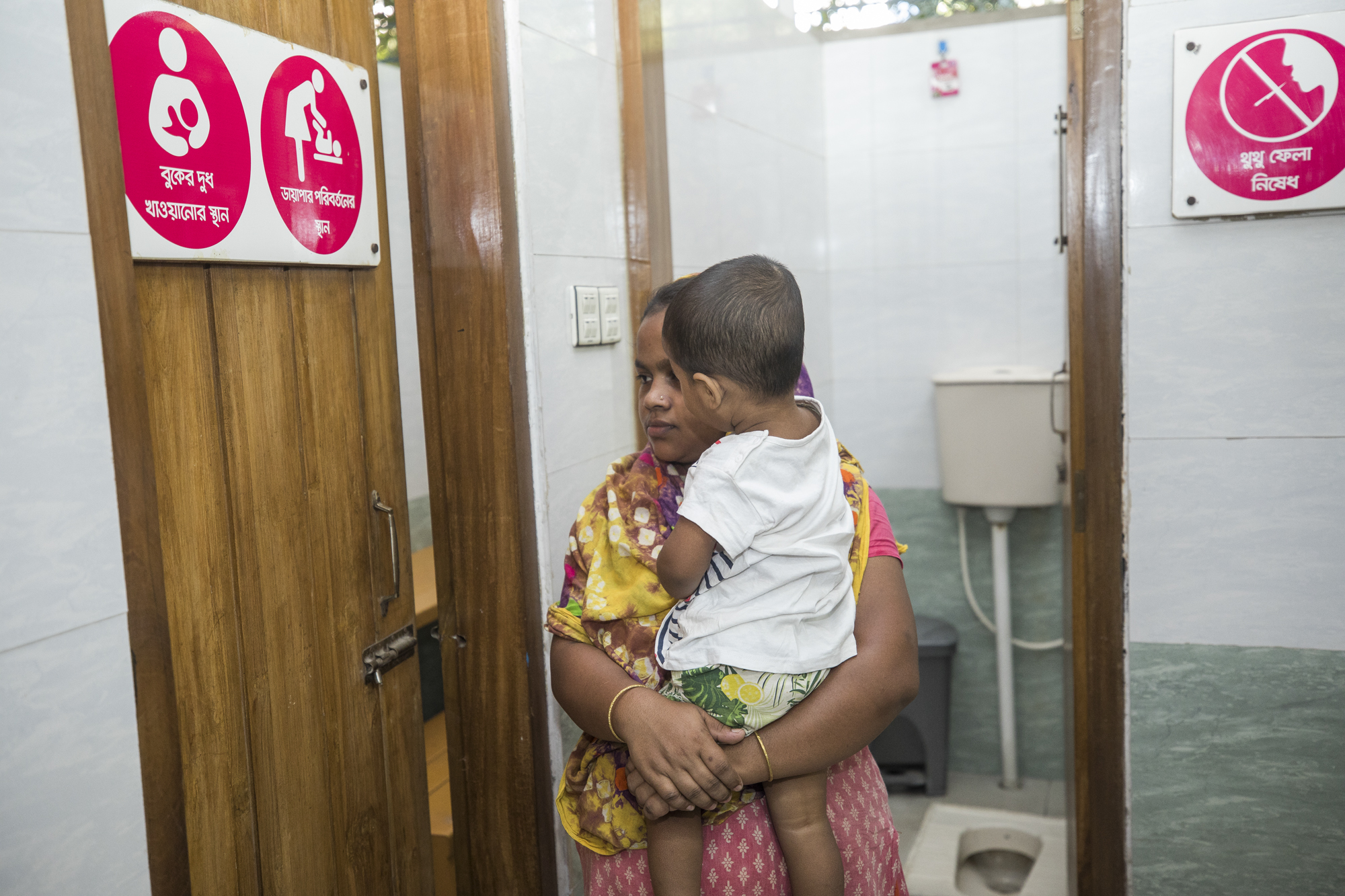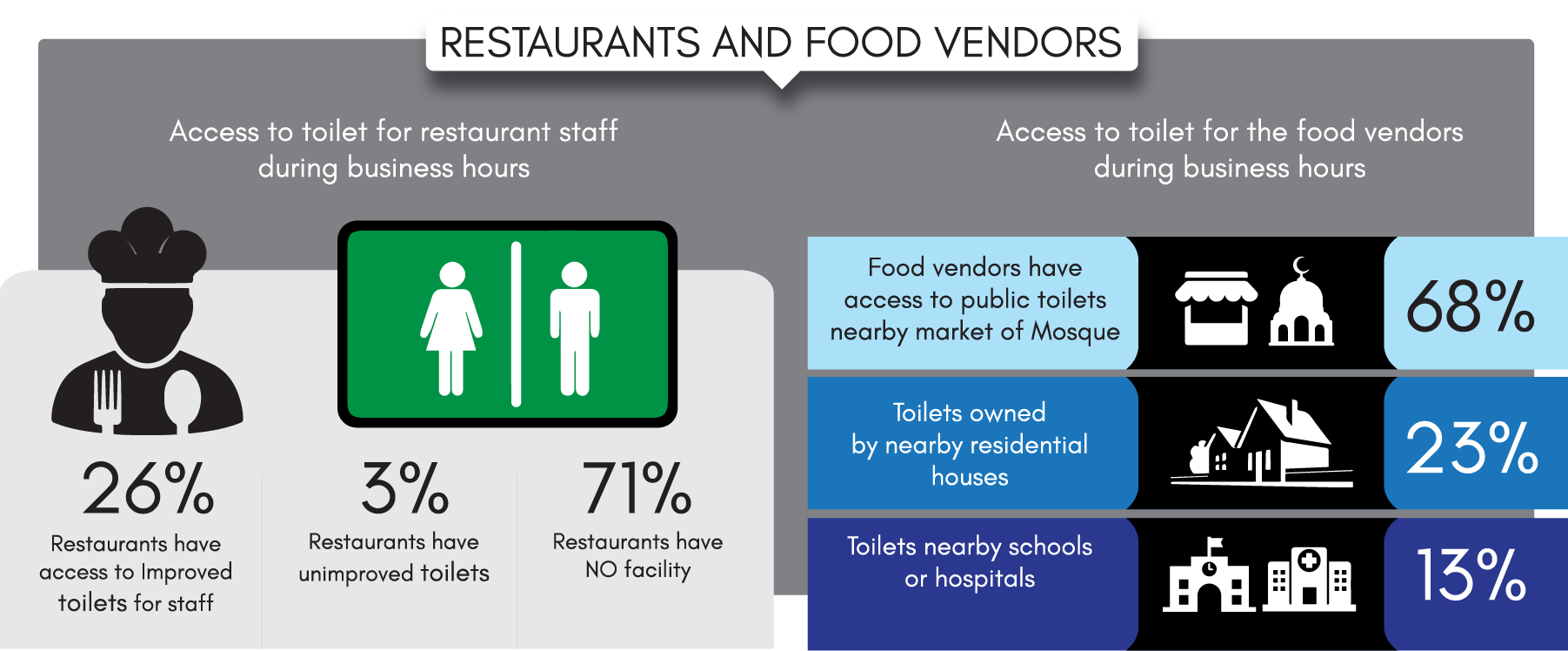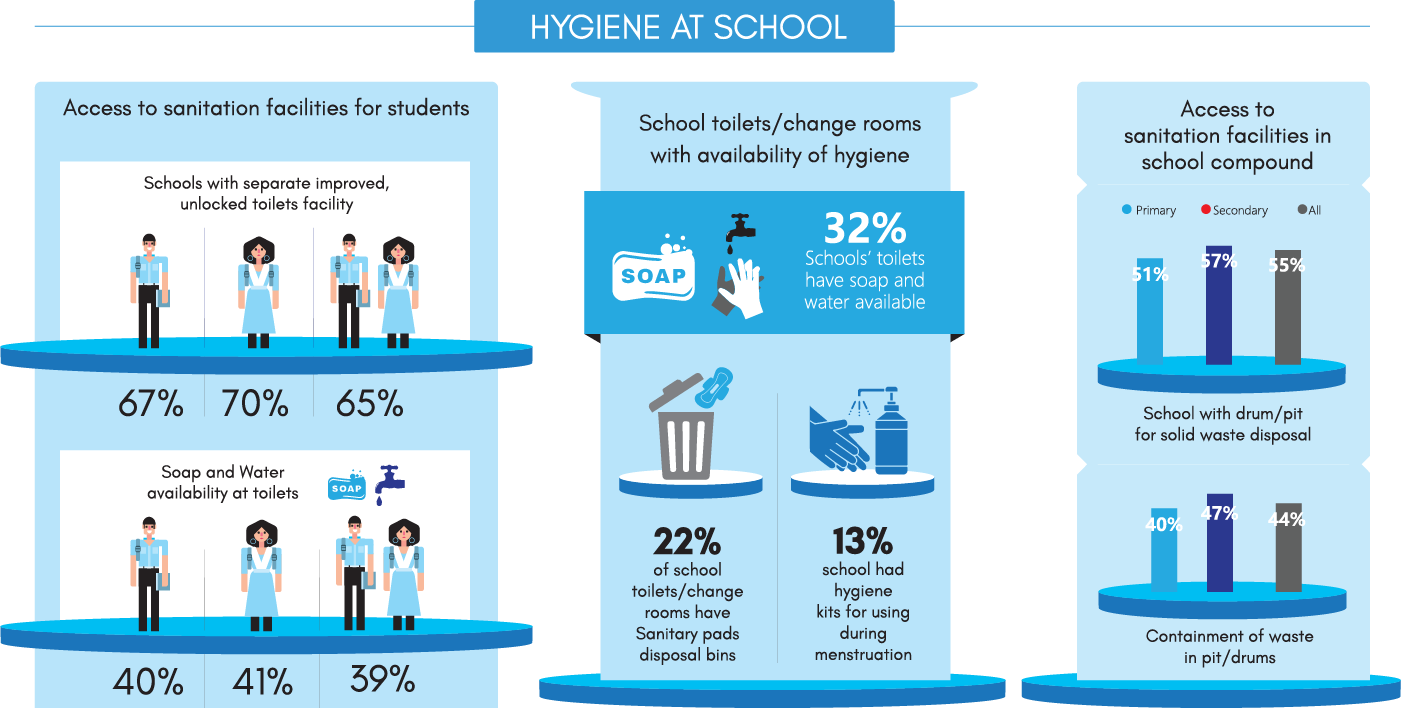
Author: Sadia Rahman
Today is World Toilet Day! To mark the day, The Business Standard in collaboration with UNICEF and WaterAid looked into some of the realities for women living without decent toilets. The stories talk about people affected by a lack of access to this human right. The joint initiative calls for sustainable water, sanitation and hygiene (WASH) facilities for everyone, everywhere!
It has been three years since Puja Gupta, 26, was appointed a traffic sergeant. As her morning shift starts at 6:30 a.m., she has to leave her home by 6 which is why she can barely pack her stuff up in time.
The duration of her shift is 7 to 8 hours. The long duty hours, the overtime and the commute altogether keep her outside of home for at least 10 hours a day. And the pattern of her work requires a lot of strength and energy.
Strength has never been an issue for her as she takes care of her fitness. Considering traffic jam or roadside is her workstation, it is a constant struggle for her due to lack of proper toilet facilities.
As a working woman she feels the necessity of clean toilets more than anyone else.
It is not just Puja who feels that way.
Despite toilets having a crucial part to play in one’s well-being, United Nations Children's Fund (UNICEF) and World Health Organisation (WHO) published a report in 2019 that said around 4.2 billion people are deprived of proper sanitation system worldwide.
Defective sanitation system according to the study is closely related to water pollution that frequently causes outbreaks of diseases like Cholera, dysentery, hepatitis A and typhoid.
Prevalent outbreak of such disease may sustain the vicious cycle of poverty. To end such poverty, the goal is to make sanitation system accessible to all by 2030.
In Bangladesh, the key findings of National Hygiene Survey 2018 conducted by Bangladesh Bureau of Statistics reveals that only 56% people of the country have access to the improved latrine facility.
The scenario is worse for women as the existing facilities are not always gender friendly. Puja’s statement further strengthens that claim. She used to go to the patrol pump toilets initially.
“Those are not appropriate for anyone, especially for women. There is stench coming out of the toilets always. In many cases they do not have running water and they are never clean” she said.
As a solution to her problem she started having less water than usual so that she does not need to go to the washroom at all.
In case of emergency she uses bus counter toilets, looks out for shopping malls if there is one nearby as she finds public toilets indecent.
“During menstruation I stop having normal food too so that no such situation as using toilet arises. I have not used toilets outside for last three years during my period” she said.
She mentioned how important it is to have clean public toilets that are also women friendly.
This lack of proper sanitation system is dominant in almost every sector starting from schools, healthcare centres to restaurants.
For example, Morjina Begum, a street vendor who sets up her makeshift shop in Mirpur that does not have access to public toilets.
Morjina is the sole earning member in a family of four where her husband is unemployed. She sets up her shop at 10 am in the morning and it goes on till evening.
The highest amount of money she can make in a day is Tk 450 for which she has to sit there all day long.
But she cannot afford to do that. When she is in need of using a toilet, she requests someone else to look after her shop and goes to her slum that is 5 minutes away from her shop.
Access to toilet is not easy at home either as there is only two toilets for 15 families in her slum. She has to wait in the queue to get in there.


“So, I request the caretakers on the botanical garden to let me use the washroom designated for them. The washroom does not have any light but I manage without it. In exchange of this favour I clean their yard” she said.
WaterAid along with City Corporations have managed to establish 42 public toilets countrywide. The toilets have separate facilities for men, women and especially disabled people.
These toilets have separate basins along with hand wash facilities. Slippers are also provided, and anyone willing to use the toilet has to remove their shoes and wear the slippers in order to maintain the cleanliness of the washroom.
The public toilet also offers safe clean drinking water for the community people. The toilet is being used by people on the move in the community such as rickshaw pullers and tea-stall visitors as they have no other clean alternatives.
WaterAid also launched free cards for marginalised people to get access in the public toilets.
These toilets have proved to be a great help for Snigdha Talukder a private university student.
Though her institute has separate washroom facilities for women, she gets uncomfortable to use the toilet while menstruating for the lack of hygiene kit.
A look into the same key findings of BBS in 2018 revealed that co-education institutes often fail to provide segregated washroom for the students and only 22% of the school toilets have sanitary pads disposal bins which is something very crucial to address for girls.
Though the survey was focused on schools, Snigdha’s experience states that the scenario is not very developed in higher educational institutes either.
As she lives nearby her university, she prefers running to her home to use washroom during that time. But her plight is not limited to her institute.
She frequently suffered from Urinary tract infection (UTI) and restrained during her movement for unavailability of toilets.
“After coming to Dhaka, I had UTI three times because I drank less water fearing to use public toilets” she said.
However, since she discovered a public toilet beside Ananda Cinema Hall of Farmgate she feels a lot relieved.
“I have to pay Tk 5 for using the washroom but it is worth it since there is running water in the toilets, hand washing facilities are good and overall, they are well maintained” she said.
She even installed an app-Public Toilet Bangladesh that shows her the nearby available public toilets across the country. Like many others facing similar conditions, she too feels that there should be more public toilets like this.










